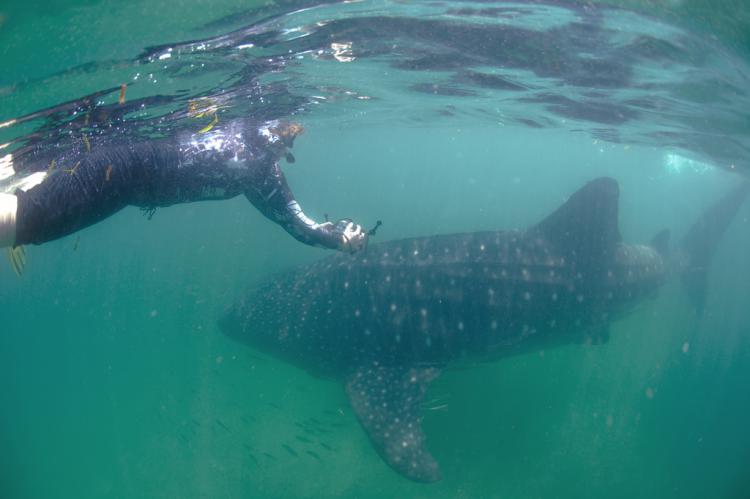Whale Sharks congregating around Azores
Warming water temperatures attracting sharks in increasing numbers. Whale shark tourism a growing business in the archipelago
According to a new study, whale sharks are congregating to the waters off the Azores, the Portuguese archipelago in the North Atlantic Ocean. According to the study published in PLoS ONE, whale sharks tend to enjoy warmer temperatures, but have been affected by climate change.
The world’s largest sharks, whale sharks are slow-moving filter feeders that usually inhabit tropical and warm-temperate seas. Preferring temperatures that aren’t too hot or too cold, the Azores is fast becoming whale shark central. Pedro Afonso of the University of the Azores and his colleagues wrote that the “occurrence of the whale shark in the wider Azores region increased drastically in 2008. Prior to this, and for a full decade, these large animals had only been sighted sporadically,” but the sharks keep coming.
Known as ‘pintados’in Portugal, the sharks sometimes occur in the Azores during the summer and associate with tuna, which local fisherman utilize as an aid to locating and fishing the tuna schools. However, the sharks have been coming more frequently, to the point that whale shark tourism has become a growing business.
The researchers analyzed a 16-year (1998-2013) observer data set from tuna fishermen around the region. They also used models to investigate the movement of the sharks in relation to factors such as food, sea surface temperature and seafloor features.
On the increase
Whale shark numbers Azores have been increasing steadily since 2008, which appears to coincide with water temperature changes. Usually the Azores falls into the colder side of the sharks’ preferred range, but increasing water temperature are attracting them. The temperature increase correlates with larger amounts of chlorophyll A, a type of whale shark food. The researchers discovered whale shark populations are higher in areas of increased seafloor slope and closer to seamounts as these regions tend to be richer in chlorophyll-A.
Our findings underline the potential for an increase of the wider Azores region’s importance as an oceanic habitat for the whale shark in the North Atlantic in years of exceptionally high water temperature, and for a concomitant shift in the whale shark distribution within the Atlantic Ocean, as predicted by global modeling studies. In the future, such shifts need to be placed in the context of decadal and very long-term changes in this ocean.


